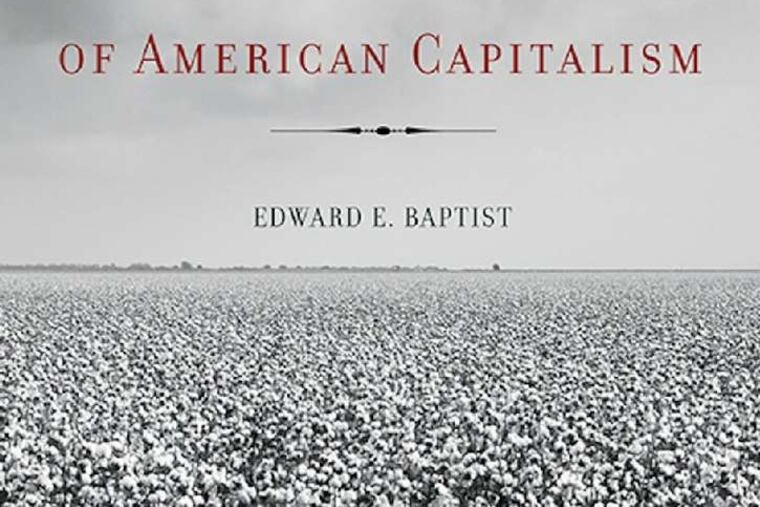How the slave economy was built on countless acts of individual cruelty
The image of the genteel, benevolent Southern slave owner was the creation of early 20th-century artists and writers like D.W. Griffith and Margaret Mitchell. Life on the antebellum plantation, they led us to believe, was as languid as a slow-moving river winding through magnolia trees.

The Half Has Never Been Told
Slavery and the Making of American Capitalism
By Edward E. Baptist
Basic. 528 pp. $35
nolead ends nolead begins
Reviewed by
Hector Tobar
The image of the genteel, benevolent Southern slave owner was the creation of early 20th-century artists and writers like D.W. Griffith and Margaret Mitchell. Life on the antebellum plantation, they led us to believe, was as languid as a slow-moving river winding through magnolia trees.
About the same time, American historians were writing the first analyses of slave-centered Southern society. Slavery was an economically inefficient institution, they argued. For slave owners, profit was a secondary concern. Being lord of the manor was its own reward.
In The Half Has Never Been Told: Slavery and the Making of American Capitalism, Cornell professor Edward E. Baptist makes a persuasive case that slavery wasn't like that at all. Plantations ("slave labor camps," he calls them) were run with the ruthless efficiency of your typical sweatshop. This ambitious new economic and social history of antebellum America suggests the bondage of African Americans was just another chapter in the rise of the global economy.
The cotton boom that started just after 1800 changed the American economy, Baptist argues. Before then, slavery was in decline. But with the spread of the Industrial Revolution, cotton became the world's most traded commodity.
Perhaps the most important contribution of The Half Has Never Been Told to the literature on slavery is Baptist's ability to convey the size and scope of the slave economy while managing to detail how that economy was built on countless acts of individual cruelty.
Baptist paints a picture of the plantation as a kind of factory that used "torture" and a speeded-up "pushing" system to increase the amount of cotton slaves picked. "Every single day, calibrated pain, regular as a turning gear, challenged enslaved people to exceed the previous day's gains in production," Baptist writes. Between 1820 and 1860, the productivity of cotton-pickers doubled.
Baptist writes also of religion and the impact of slavery and the cotton boom on American politics, touching on everything from music to the Nat Turner rebellion. At times, it feels like he's taken on too much.
But overall, the book is a fresh if flawed take on a history we thought we knew too well - the history of a people who were victimized by a medieval brand of capitalism but survived.
Hector Tobar is a novelist and former staff member at the Los Angeles Times, where this review originally appeared.